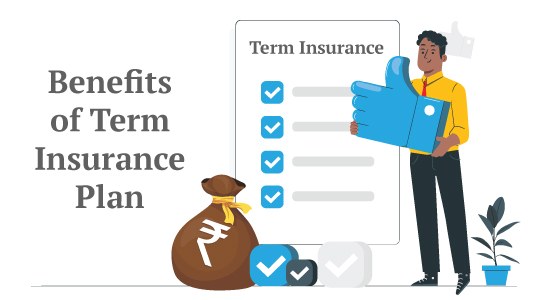Benefits of Term Life Insurance
When it comes to financial planning, one of the most crucial aspects is securing the future of your loved ones. Term life insurance is a popular choice for individuals seeking affordable and temporary coverage. In this article, we will explore the numerous benefits of term life insurance and how it can provide you with peace of mind.
Financial Protection
Term life insurance offers a level of financial protection that is unmatched by other types of insurance. By purchasing a term life insurance policy, you ensure that your loved ones will be taken care of financially in the event of your untimely demise. The death benefit provided by term life insurance can help cover expenses such as mortgage payments, outstanding debts, and educational costs.
Affordability
One of the key advantages of term life insurance is its affordability. Compared to permanent life insurance policies, term life insurance offers significantly lower premiums. This makes it an ideal choice for individuals who have a limited budget but still want to provide financial security for their families. Term life insurance allows you to obtain a substantial coverage amount for a fraction of the cost of other insurance options.
Flexibility
Term life insurance provides policyholders with a great deal of flexibility. Unlike permanent life insurance, which lasts for the policyholder’s entire lifetime, term life insurance offers coverage for a specific period, typically ranging from 10 to 30 years. This flexibility allows you to choose a term that aligns with your specific needs, such as the duration of your mortgage or the years until your children become financially independent.
No Medical Exam Option
For individuals who prefer a hassle-free application process, term life insurance offers a no-medical exam option. This means that you can secure coverage without undergoing a medical examination or providing detailed medical records. The no-medical exam option is particularly beneficial for individuals with pre-existing medical conditions or those who want to avoid the inconvenience of a medical examination.
Convertibility
Another advantage of term life insurance is its convertibility feature. Many term life insurance policies offer the option to convert to a permanent life insurance policy without the need for a medical exam. This can be beneficial if your circumstances change, and you decide that permanent life insurance is a better fit for your long-term financial goals.

Term life insurance offers a range of benefits that make it an attractive choice for individuals seeking financial protection. Its affordability, flexibility, and convertibility options provide policyholders with peace of mind and the ability to tailor their coverage to their specific needs. Whether you are looking to secure your family’s future or protect your financial obligations, term life insurance is a valuable tool that can provide you with the necessary protection.
Frequently Asked Questions about the Benefits of Term Life Insurance
1. What is term life insurance?
Term life insurance is a type of life insurance that provides coverage for a specific period, typically 10, 20, or 30 years. It offers a death benefit to the beneficiaries if the insured person passes away during the term of the policy.
2. What are the main benefits of term life insurance?
Term life insurance offers affordable premiums, flexibility in coverage duration, and a simple protection solution for a specific period. It provides financial security to your loved ones in case of your untimely demise.
3. How does term life insurance differ from whole life insurance?
Unlike term life insurance, whole life insurance provides coverage for your entire lifetime. Whole-life policies also have a cash value component that grows over time. Term life insurance, on the other hand, focuses solely on the death benefit during a specific term.
4. Can I renew my term life insurance policy?
Most term life insurance policies offer the option to renew at the end of the term. However, the premiums may increase upon renewal, as they are typically based on your age at the time of renewal.
5. Are the premiums for term life insurance fixed?
Generally, the premiums for term life insurance remain fixed throughout the term of the policy. However, some policies may have increasing premiums, so it’s important to review the terms and conditions before purchasing.
6. Can I convert my term life insurance policy into a permanent policy?
Many term life insurance policies offer the option to convert to a permanent policy, such as whole life insurance or universal life insurance, without the need for a medical exam. This can be beneficial if you decide you need coverage beyond the initial term.
7. Is term life insurance suitable for everyone?
Term life insurance is a popular choice for individuals who want coverage for a specific period, such as during their working years or until their mortgage is paid off. It may not be suitable for those who need lifelong coverage or want to build cash value.
8. Can I add riders to my term life insurance policy?
Yes, many insurance companies offer optional riders that can be added to term life insurance policies. Common riders include accelerated death benefits, critical illness coverage, and disability income rider. These riders provide additional protection and benefits.
9. What happens if I outlive my term life insurance policy?
If you outlive your term life insurance policy, the coverage will expire, and you will not receive any death benefit. However, some policies may offer the option to convert or renew the policy, although the premiums may increase.
10. How much term life insurance coverage do I need?
The amount of term life insurance coverage you need depends on various factors such as your income, debts, financial goals, and number of dependents. It’s recommended to assess your financial needs and consult with an insurance professional to determine the appropriate coverage amount.




